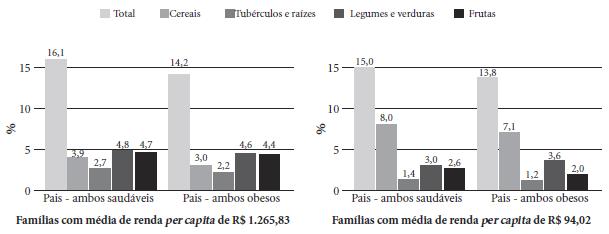A growing proportion of overweight individuals in Brazilian population highlights the importance of research in this area. Thus, this paper investigates the obesity problem from the point of view of intergenerational approach using Body Mass Index (BMI) of parents and their children. The information concerning BMI and socioeconomic control variables are obtained from the Household Budget Survey (POF) 2008-2009. The methodology of analysis considers the Markov transition matrix, quantile regressions and logistic regressions taking into account gender and family structure. The results suggest the existence of a strong association of BMI between parents and children, with the fraction of obese children increasing in families with single parents and households where both parents are obese. The analysis of quantile intergenerational elasticity indicates the higher children's age and their more intense BMI index is the intergenerational effect of parental health. Finally, the effect of maternal obesity is greater than the effect of paternal obesity in terms of intergenerational transmission of obesity for the children, regardless of gender.
Obesity; Intergenerational mobility; Elasticity; Persistence


